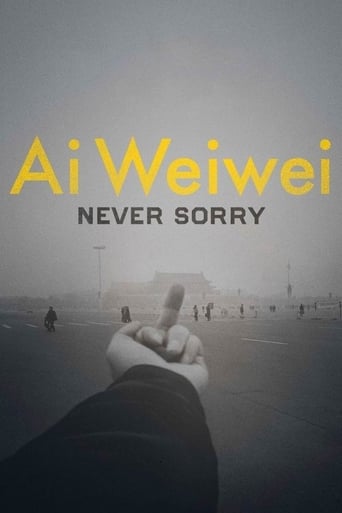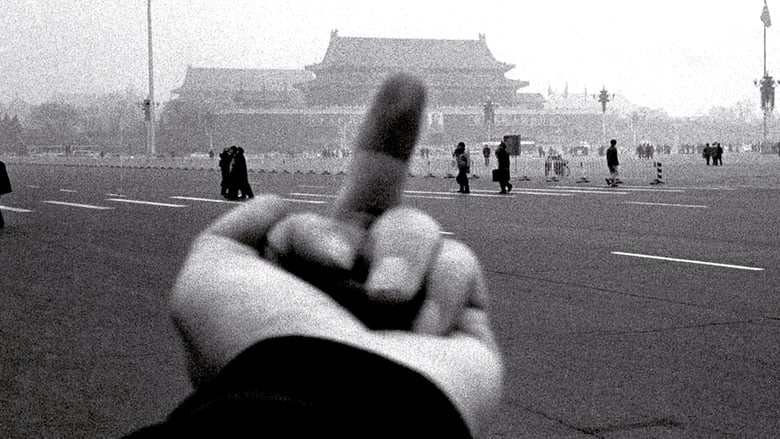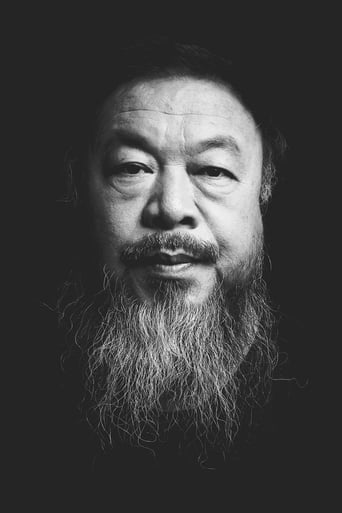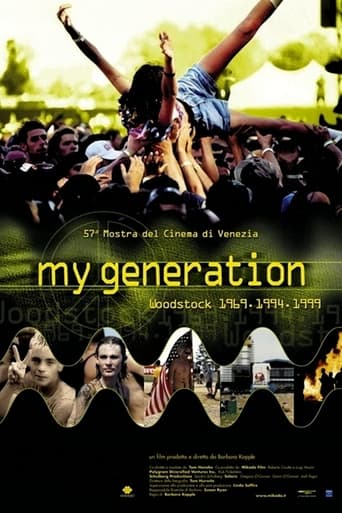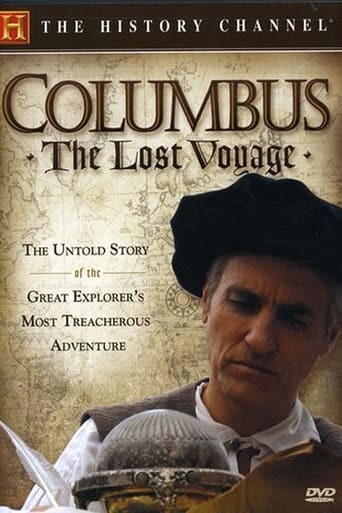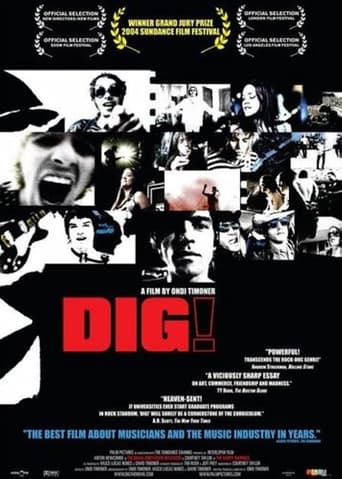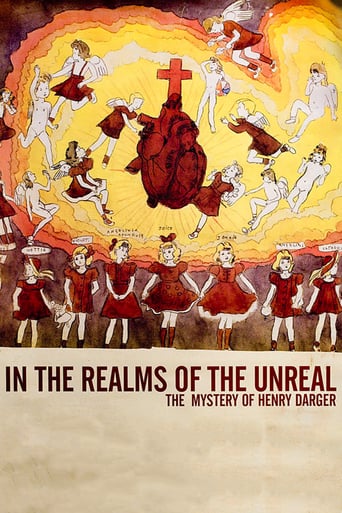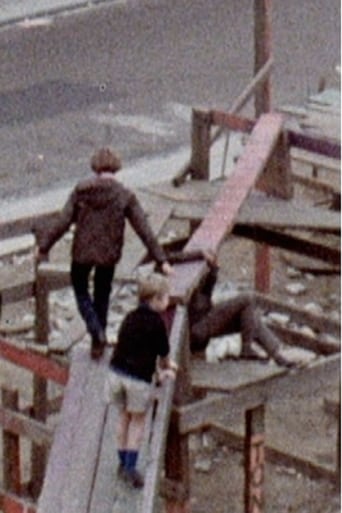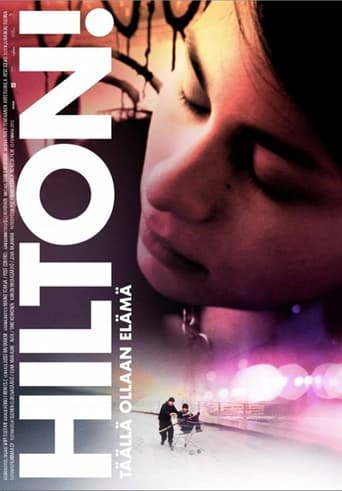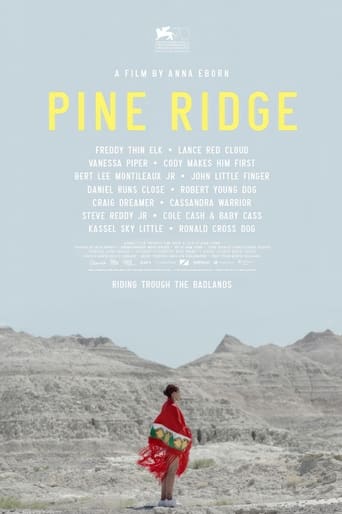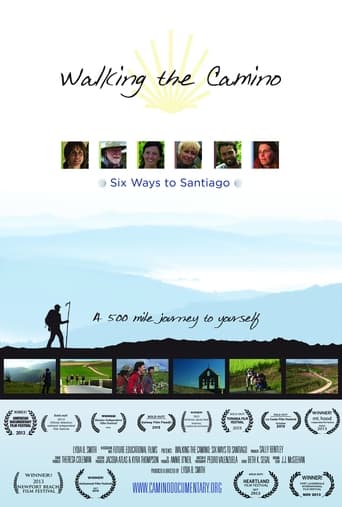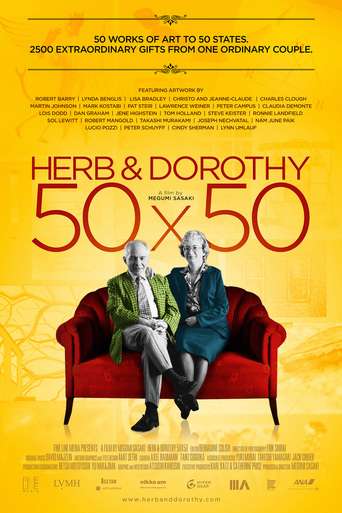Ai Weiwei: Never Sorry (2012)
An account of the many tribulations that Chinese artist Ai Weiwei, known for his subversive art and political activism, endured between 2008 and 2011, from his rise to world fame via the Internet to his highly publicized arrest due to his frequent and daring confrontations with the Chinese authorities.
Watch Trailer
Cast


Similar titles
Reviews
Waste of Money.
If you don't like this, we can't be friends.
Good story, Not enough for a whole film
This is one of the few movies I've ever seen where the whole audience broke into spontaneous, loud applause a third of the way in.
It is not until the lens of Beijing journalist Alison Klayman pulls in for a closer look that the troubling truth is revealed. These cameras in fact represent the ever-watchful eye of a frightened government that Ai Weiwei views as his opponent in an eternal chess match.Moviegoers unfamiliar with the fearless titular muckraker of Klayman's invaluable documentary, Ai Weiwei: Never Sorry, are practically guaranteed to become instant fans after seeing this richly involving portrait. There is perhaps no greater champion of individuality and its inherent power than this controversial icon, whose distinctive works powerfully function as both art and political statements. Consider his famous photographs in which he shatters a Han Dynasty vase, thus conveying that the past, however sacred, must be done away with in order for necessary reform to be achieved.Ai Weiwei's field of 100 million individually-made sunflower seeds represent the diversity of ideas that remain repressed by the bureaucratic regulations of his country's communist party. No doubt some of his revolutionary spirit rubbed off on Klayman, who utilizes various clips from Ai Weiwei's self-made documentaries that he distributed for free online. The footage chronicles his activism and the abuse that he has endured at the hands of government officials. Klayman has echoed her subject's philosophy by openly admitting in interviews that she hopes her film will be pirated, acknowledging that such a crime could help spread Ai Weiwei's message past the boundaries of American art houses.This is not the sort of stuffy, pompously ponderous doc that audiences view as the cinematic equivalent of nutritious yet tasteless vegetables. Klayman has made an immensely entertaining picture that garners a great deal of its mileage from the irrepressible charisma of Ai Weiwei himself, who subsequently appeared in his own send-up of PSY's "Gangnam Style" video. He is not above poking fun at himself, but he is immensely serious when it come to the message that he intends to convey through his work. There is a visceral thrill in watching him thrust his middle finger at corrupted monuments such as the White House and the Bird's Nest Olympic Stadium for which he served as an artistic consultant. He quickly turned his back on the Olympic Games in protest upon learning of the migrant workers being forced out of Beijing prior to the festivities.One of the most powerful sections in the film centers on Ai Weiwei's enraged response to his government's utter refusal to investigate the faulty construction that may have dramatically increased the number of schoolchildren who perished in the 2008 Sichuan earthquake. To further avoid sullying China's image, the government did not even make an effort to release the names of the deceased children, a disgrace that prompted Ai Weiwei to collect them himself. After posting the names on his blog to commemorate the one year anniversary of the tragedy, he displayed them in the form of a massive list accompanied by the audio recording of citizens reciting the names. Suddenly, the simple profession of the children's' very existence became an act of rebellion in itself.Klayman's film takes the form of a thriller as it explores Ai Weiwei's failed attempt to testify at the court hearing of Tan Zuoren, a fellow investigator of the student lives claimed by the earthquake. Audio was captured of the violence the occurred when Chengdu police broke into the artist's hotel room and bludgeoned his head, causing a cerebral hemorrhage that required emergency brain surgery. With a boldness evocative of vintage Michael Moore, Ai Weiwei confronts one of the officers who beat him while being followed by his trusted crew. It is clear to him as it is to the viewer that justice will continually evade his grasp, but that is not reason enough for Ai Weiwei to give up on his righteous crusade. He may not receive an apology from the cop, but at least he will capture his sorry face on camera.The story that Klayman unspools is so compelling that it registers as somewhat of a disappointment when it ultimately proves to be unfinished. Ai Weiwei's 81-day incarceration where he endured psychological torture at the hands of police received an international outcry in favor of the artist's release. Following his bail in 2011, Ai Weiwei was unable to give interviews and was not even permitted to leave the country. Klayman's decision to end her film in the midst of this dire crisis was perhaps unavoidable since the artist's unquenchable hunger to provoke ensures that his troubles with police will continue until his dying day. Though police claim that Ai Weiwei was arrested purely in the basis of tax evasion charges, Klayman's film makes a thoroughly convincing argument to the contrary.At an effortlessly watchable 91 minutes, the film does leave certain aspects of Ai Weiwei's life underdeveloped, particularly his complex relationship with his devoted wife, who conspicuously vanishes from the film after it is revealed that her husband had a child with another woman. This detail may seem irrelevant to the film's central subject matter, but it is crucial in portraying Ai Weiwei as a flawed human being rather than a larger-than-lie saint. He has no desire to be worshipped, anyway. His single hope is that the vital truths his work illuminates will resonate with the multitudes, and that is precisely what has begun to happen. Ai Weiwei's status as a close runner-up for Time's Person of 2011 parallels the triumph of Chinese writer Liu Xiaobo, who was awarded the Nobel Peace Prize soon after being sentenced to 11 year in prison for "inciting subversion of state power." If these extraordinary activists prove anything at all, it is that one's power and influence can indeed transcend the boundaries of a governmental gag order. Ai Weiwei is more than a mere artist or activist. He is an indomitable force on nature.
Ai Weiwei isn't just a hilarious name to say to any Englishman but also a name associated with freedom of speech in modern day China. An artist by trade, Mr Weiwei is now more (in)famous for saying 'fuck you' to the Chinese Government than putting any brush strokes to canvas.'Never Sorry' is the documentary from debut director Alison Klayman resulting from her four years following China's most famous artist as he travels around China and the world causing further and further headaches for local police and the Chinese Government. Concentrating as much on political acts than artistic ones, the film shows the importance of Twitter and social media in a country such as China, showing as many of his status updates throughout the film as Richard Herring will commit in a 90 minute period. The balance between politics and art is well maintained throughout, reminding that he has actually done some good works over the years - as well as breaking some old pots - while showing the political motivations in his work through interviews with various peers and colleagues over the last three decades.But saying 'fuck you' and breaking some vase-thing doesn't come without its fair share of problems. Various confrontations with police, sometimes violent, are shown, as well as his non-mysterious disappearance in 2011 and the momentary stem in the flow of his freedom of speech. The documentary is more about freedom of speech than a biopic of an artist, using him as an example of the impact of social networking, as well as what happens when the rules are broken.There are some weak points, such as the mystery around his son with a woman that isn't his wife – a topic that his wife is not questioned on and which he is coy – that is only mentioned and not explored; and his confrontation with police while sticking cameras in their faces probably provokes a response from law enforcement that would be met in most nations in the world. As noted, the fact that someone like Ai Weiwei exists shows that there has been some change in China over the years, though the fact that his words are met with such strong response from the Government shows that there is still a long way to go before China becomes a nation where people can freely express their opinions to the world on Twitter without fear of arrest and prosecution – unless, of course, you're a Premiership footballer.www.politic1983.blogspot.com
Ai Weiwei is an internationally acclaimed Chinese artist-activist who is provocatively condemning his motherland government for grave social underbellies (in light of an unbalanced economy acceleration) as corruption nonfeasance and misfeasance among officials, systematic injustice, moral languor and freedom repression (a focal point is the aftermath of Wenchuan earthquake in 2008, whose casualties are over 80,000, among which are many children stayed inside shoddily-built school buildings) and valiantly spearheading (not the least in the artist field) a new wave of self-awakening among his fellow compatriots, which has promptly wrought government's mistreatment and investigations, all up to a somewhat "mysterious" disappearance during 2011 for half an year, then later ostensibly claimed by the Chinese government as a series of tax evasion interrogations of Ai's company, then subsequently Ai has been forbid to neither leave Beijing for one-year nor to speak about the matter. So if one is all familiar with the story, this documentary has rather little novel to offer, first- time director Alison Klayman covers a quite comprehensive range to introduce Ai's art, family and the (short but carefully-selected) comments from his friends and peers, but all falls short of incisiveness and compassion. The family card is an omnipotent weapon to probe a more personal facet of the artist himself (his illegitimate son has been briefly discussed here) which could induce empathy for every single viewer, however, this is a common-law generally fits under any similar context, the real Ai Weiwei is still elusive and taciturn. With such a contentious figure, Klayman seems to choose a very conservative story-telling which is exuding from a sheer westerner's point-of-view (a lone fighter against the all-evil oriental and dictatorial institution, surely the truth is much more intricate as we all know), still a shred of information betrays Ai's hooliganism in his own tactic, which would arise more interest (at least for myself). All in all, the film has attest to that Weiwei is a true artist (he is not exploiting all the controversies to grandstand his art work) if nothing else, and by the way, if anyone who is really into Ai's artwork, this documentary is not recommended for you unless you have never heard of his ground-breaking SUNFLOWER SEEDS exhibition.
"There are individuals who come along in certain periods of time who advance the human spirit to the next level." – actor James Newcomb Heroes are not only those who achieve unprecedented success, but those who create possibilities for others. "Breakthroughs" according to Werner Erhard, "are created by people who will act to make possibility real." Such an individual is Ai Weiwei (pronounced "Ay Way Way") a Chinese artist and political activist whom Time Magazine named as runner-up for "2011 Person of The Year." Directed by Alison Klayman, the compelling documentary Ai Weiwei: Never Sorry, winner of a Special Jury Prize at this year's Sundance Film Festival, follows Ai Weiwei pursuing his sculpture, architecture, curating, photography, film, and other arts in a political system that does not hesitate to use force, repression, and censorship against those they see as threats to the Communist government.Ai Weiwei's father was Chinese poet Ai Qing who was denounced and sent to a labor camp with his wife, Gao Ying, an event that had strong repercussions in Ai's life. Ai Weiwei lived in New York from 1983 to 1993 where he studied and worked as an artist. While in New York, he created conceptual art by altering ready-made objects. He also compiled 10,000 photographs that were shown in an exhibit at the Three Shadows Photography Art Centre in Beijing and became the subject of a 20-minute film "Who's Afraid of Ai Weiwei" shown on PBS in 2008, a work that was expanded to produce the current documentary.Using interviews with friends, family members, fellow artists, and young followers, Klayman describes Weiwei's involvement in the Sichuan Earthquake Names Project which listed the names of 5,000 student victims who lost their lives because of shoddy construction of schools, his criticism of the government's use of propaganda to support the Beijing Olympics whose Bird's Nest Stadium he helped to design, and his provocative use of humor in his exhibit using photographs showing his extended middle-finger in front of Tiananmen Square. Weiwei says, "There is no outdoor sport as graceful as throwing stones at a dictatorship." The film also documents the artist's exhibitions in Munich, especially a work called "Remembering" which displayed 9,000 backpacks spelling out the words "She lived happily on this earth for 7 years," a reference to students who were killed in the Sichuan earthquake. Another exhibit shown at the Tate Gallery in London consists of 100-million porcelain hand-painted sunflower seeds made in China. Though China claims that human rights have improved in their country, Ai Weiwei's assault by police thugs attempting to prevent him from testifying at the trial of Tan Zuoren belies the claim. Zuoren, an activist and recent Nobel Peace Prize winner, was sentenced to 11 years in prison for several articles that, according to Weiwei, were reasonable and not at all provocative.One of the most important aspects of Weiwei's activism is his use of social media, especially Twitter (@aiww), an activity that he began in earnest after his blog was taken down by the authorities. This is demonstrated by his ability to quickly organize resistance to the government's proposed demolition of his newly-built art studio in Shanghai which they deemed "illegal." Though the documentary breaks no new ground as an art form and only skims the surface of Ai's personal life, Ai Weiwei: Never Sorry is a well-made and often inspiring film about an artist who is willing to take enormous risks for his own safety to expose human rights abuses and which reaches a new level of intensity when it is discovered that Weiwei has disappeared, leading to world-wide protests and an uncertain outcome.

